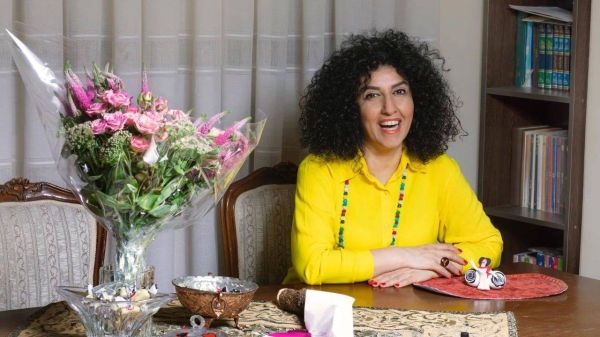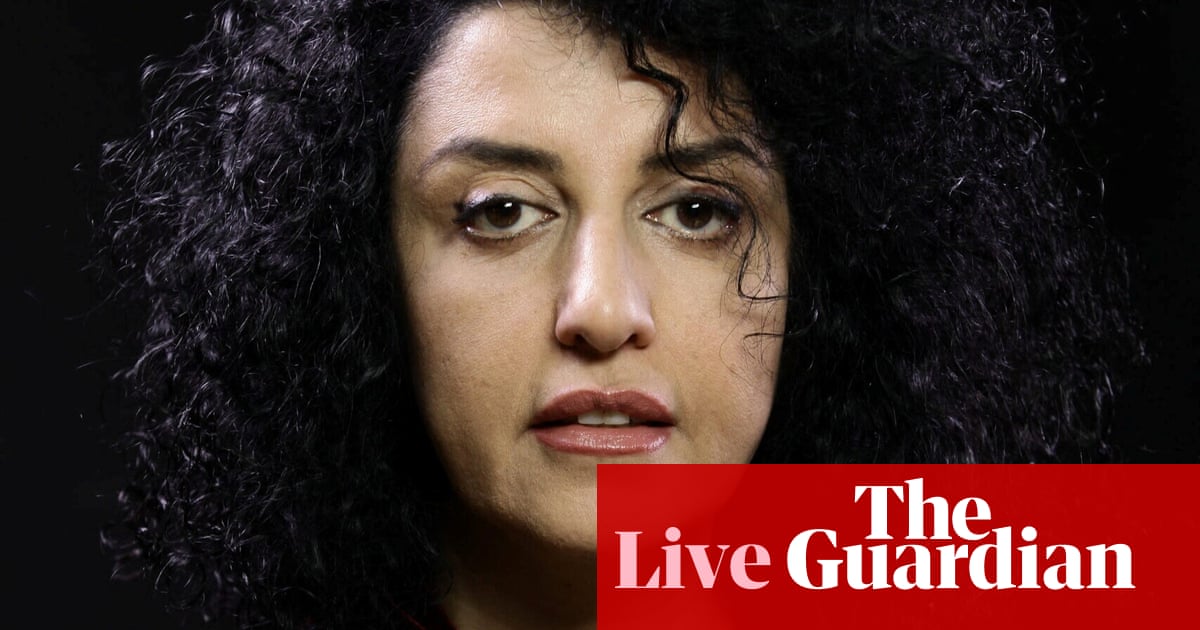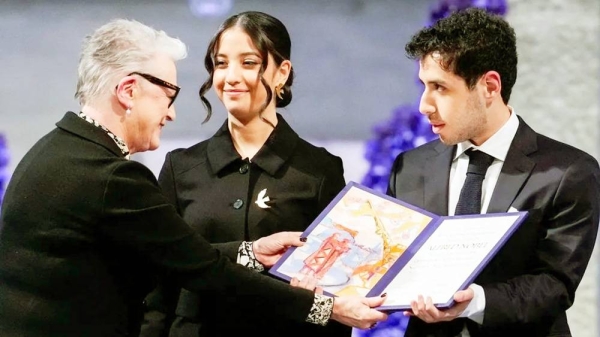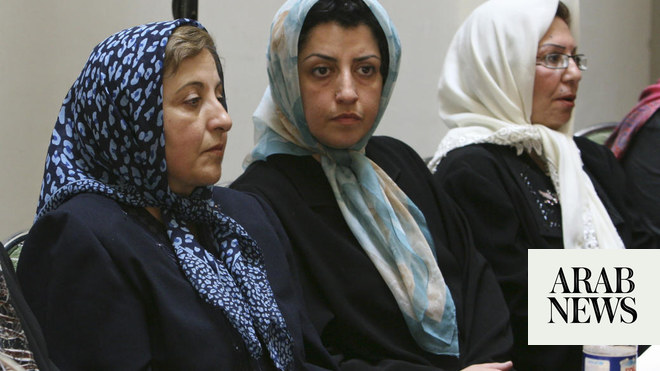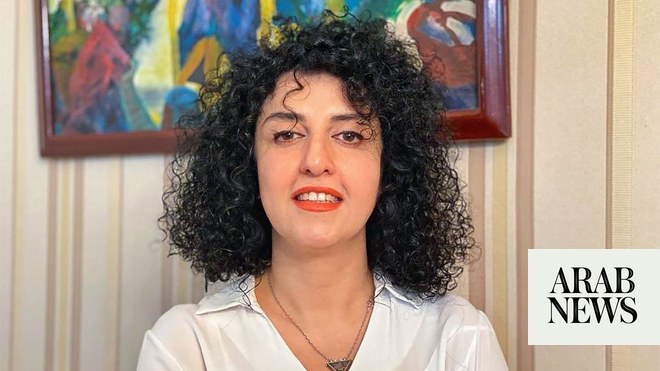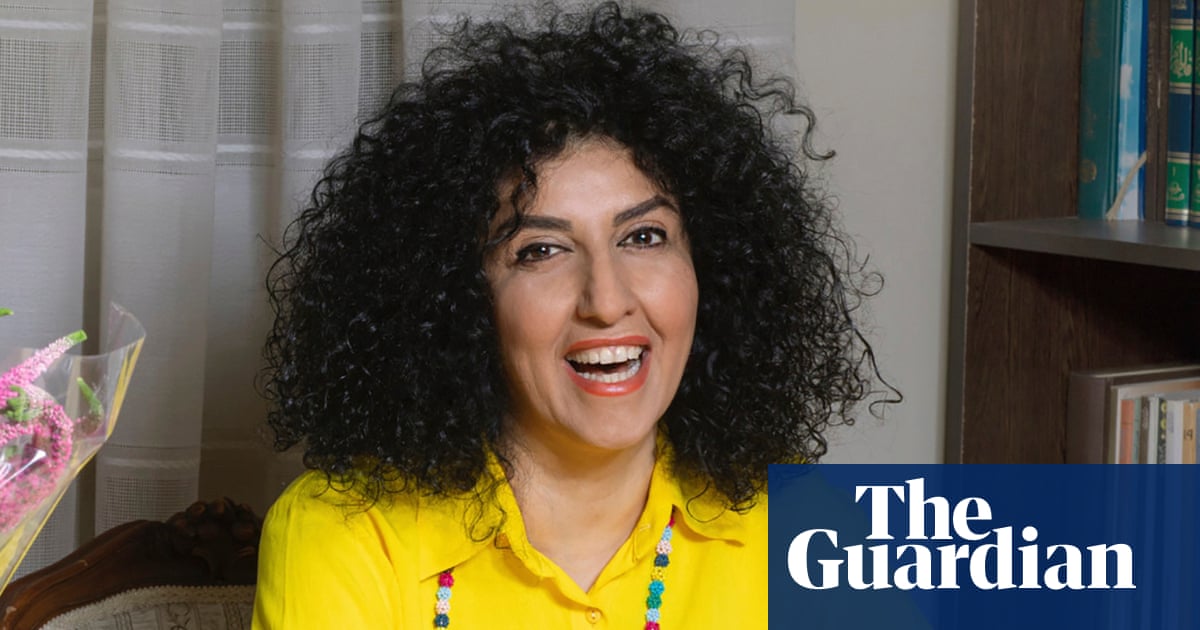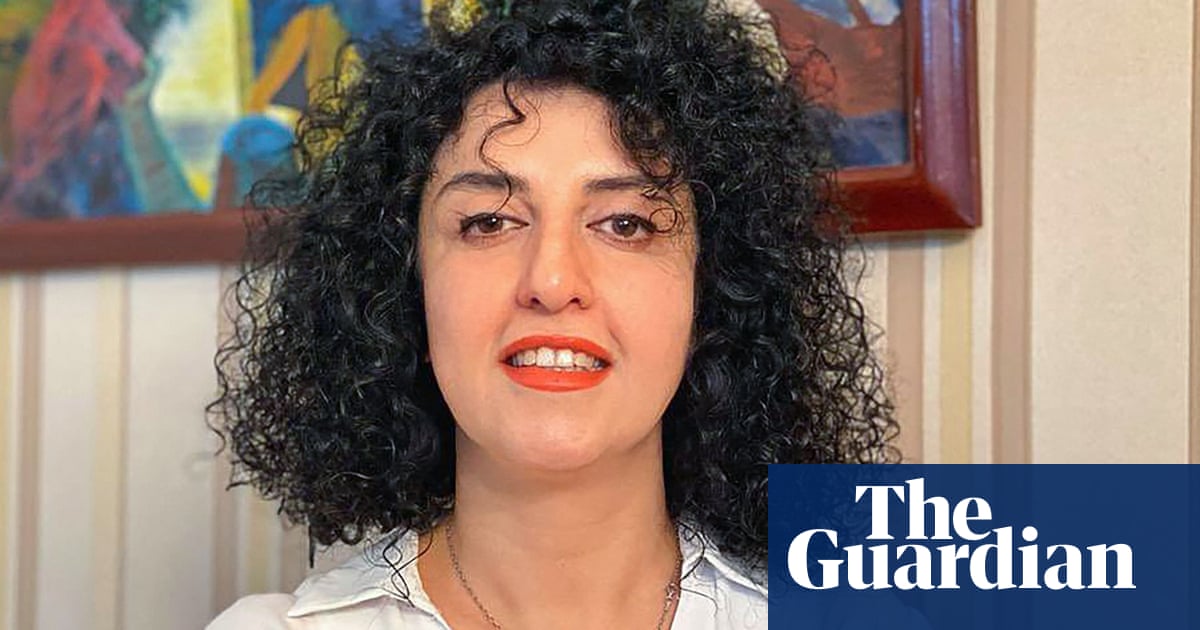
Narges Mohammadi, the most prominent of Iran’s jailed women’s rights advocates, has vowed to stay in the country and continue her activism after winning the 2023 Nobel peace prize.
“I will never stop striving for the realisation of democracy, freedom and equality,” she said in a prewritten statement released after the announcement. “Surely, the Nobel peace prize will make me more resilient, determined, hopeful and enthusiastic on this path, and it will accelerate my pace.”
Mohammadi has campaigned for women’s rights and the abolition of the death penalty and an improvement of prison conditions inside Iran.
She is serving multiple sentences in Tehran’s Evin prison amounting to about 12 years’ imprisonment, according to the rights organisation Front Line Defenders, the latest of the many periods she has been detained. Charges against her include spreading propaganda against the state.
“The Norwegian Nobel committee has decided to award the 2023 Nobel peace prize to Narges Mohammadi for her fight against the oppression of women in Iran and her fight to promote human rights and freedom for all,” the committee said in its citation.
Mohammadi has been active from within prison, warning of nationwide protests by publishing letters about the state of prisons and detention centres and violence against prisoners and detainees.
Nazanin Zaghari-Ratcliffe, the British-Iranian dual-national who shared a prison cell with Mohammadi in Evin, said: “I am so pleased for her. It makes me cry. She did so much for all of us in Evin. Narges is an inspiration and a pillar to the women in the female ward in Evin for her fearless fight against violation of women’s rights, use of solitary confinement and execution in the judicial system in Iran.
“This award belongs to every single Iranian woman who, one way or another, has been and remain to be a victim of injustice in Iran.”
The award will be viewed as a tribute to the Woman, Life, Freedom movement in Iran that rocked the clerical establishment last year but has been suppressed with many activists either killed or in jail. The protests were sparked by the death in police custody of a young Kurdish woman, Mahsa Amini, after she had been arrested for not wearing the hijab in line with state rules. The conflict over the wearing of the hijab continues.
Mohammadi is also the deputy head of the Defenders of Human Rights Center, a non-governmental organisation led by Shirin Ebadi, the 2003 Nobel peace prize laureate. The committee added: “Her courageous fight has come at a great personal cost.” In recent years, Mohammadi has not been able to live with her family, who were forced to leave Iran.
The Mohammadi family said that Narges would not be able to hear about the award until Saturday since he is not able to take calls on Thursday or Friday.
Mohammadi’s husband, Taghi Rahmani, said the prize would further encourage her struggle and the movement she leads. “This Nobel prize will embolden Narges’s fight for human rights, but more importantly, this is in fact a prize for the Woman, Life, Freedom [movement],” Rahmani told Reuters in an interview at his home in Paris, where he has lived in exile with their children since shortly after Mohammadi was imprisoned in 2015.
Her 17-year-old son, Ali Rahmani, who has not seen her for eight years, said he was “very, very proud of my mother, very happy”, as he spoke at a Paris news conference also attended by his father and twin sister. “The government is trying to break the prisoners in Iran,” he said. “This prize is an award for her struggle in Iran.”
The Office of the United Nations High Commissioner for Human Rights said the award highlighted the courage and determination of Iranian women in the face of reprisals, intimidation, violence and detention. “They’ve been harassed for what they do or don’t wear. There are increasingly stringent legal, social and economic measures against them,” OHCHR spokesperson Elizabeth Throssell told reporters in Geneva.
Nazanin Boniadi, the Iranian born actress and human rights activist, said: “The importance of the Nobel Institute recognizing a brave Iranian woman like Narges Mohammadi in this moment doesn’t escape me. A new generation of Iranians draw inspiration for her longstanding courage and human rights advocacy. I hope this moment serves as a reminder that the world is with the people of Iran, as they risk everything for freedom.”
Iran on Friday denounced what it called the “biased and political” action by the Nobel committee. “We note that the Nobel peace committee awarded the peace prize to a person who was convicted of repeated violations of laws and criminal acts,” foreign ministry spokesman Nasser Kanani said in a statement. “We condemn this biased and political move.”
Iran’s state news agency IRNA accused the Nobel committee of “politicising” human rights and said the prize had deviated from its original intention and become a vehicle to project western interests.
In mid-December last year, in a letter to Javaid Rehman, the UN special rapporteur on human rights in Iran, Mohammadi described “assaults against women during detention and in detention centres” as “part of the repression programme” of the Islamic Republic against female protesters and fighters.
In a message published on the anniversary of Amini’s death, she described it as “the day of recording the oppression of the religious authoritarian regime against the women of Iran”. Mohammadi is among women calling for the UN to widen the definition of crimes against humanity to include gender apartheid.
Because she has refused to be silenced behind bars, she has been banned from speaking directly to her husband and children for the past 18 months. “When your wife and the closest person to you is in prison, every single day you wake up worried that you might hear bad news,” Rahmani told CNN in a recent interview.
After Ebadi, Mohammadi is the second Iranian woman to receive the Nobel peace prize. No Iranian man has received the award. Mohammadi is the 19th woman to win the 122-year-old prize and the first since Maria Ressa of the Philippines won it in 2021, jointly with Russia’s Dmitry Muratov.
The Nobel peace prize, worth 11m Swedish crowns (£819,000), will be presented in Oslo on 10 December, the anniversary of the death of Alfred Nobel, the Swedish industrialist who founded the awards in his 1895 will.




